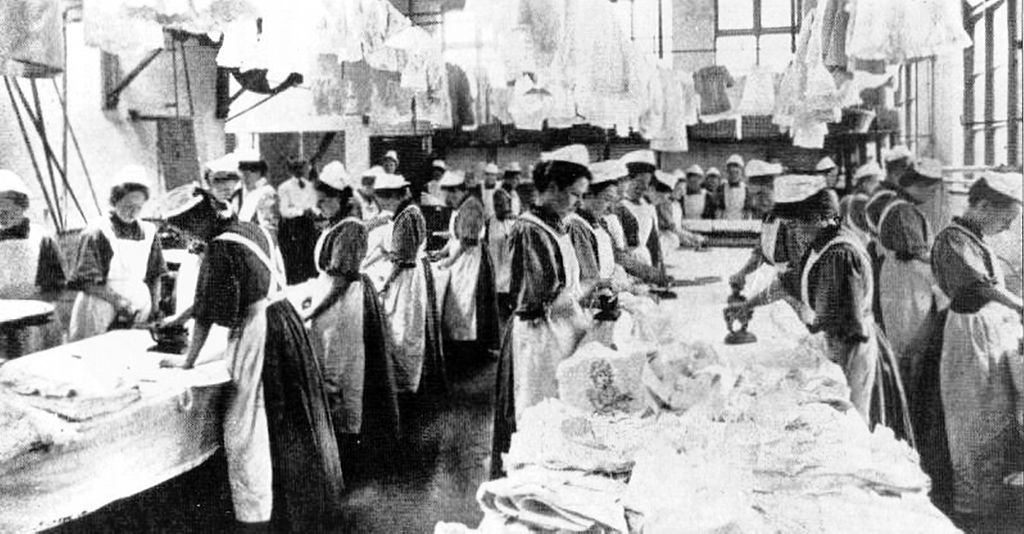Former inmates of Good Shepherd homes want compensation for forced labour


In the Netherlands at least 15,000 young girls and women were forced to work in the laundries and sewing rooms of the Catholic order of the Sisters of the Good Shepherd between 1860 and 1973, according to research by the NRC.
Five of the women now want the abuse they suffered to be recognised and the money they were denied to be paid to them.
The sisters of the Good Shepherd had homes all over Europe, Canada and Australia where girls were forced to work, with some of the most notorious abuse taking place in the Magdalene laundries in Ireland.
In the Netherlands, where the order ran homes in Zoeterwoude, Almelo, Velp and Tilburg, girls – prostitutes or unmarried mothers but more often orphans, disabled girls or girls convicted for petty crime – were put into the homes against their will by parents and official child protection organisations until the early 1970s.
Work therapy
Once in the home the chores, presented as ‘work therapy’ turned out to be forced labour in what was in fact a textile factory with clients such as hospitals, hotels, the church and the government.
In 1933 an order for 40,000 army shirts was given to the nuns. In Velp the girls even made the dowry of the late princess Juliana, the paper writes.
Apart from hard unpaid labour the inmates of the homes were also subjected to sexual abuse, harsh punishments and a lack of medical care and education.
Investigation
The five women, who asked the NRC to investigate their case, are seeking justice and an independent government investigation into the practices.
The sisters told the NRC that they apologised to the women last year but that they won’t be paying any compensation because the claim ‘became time-barred some time ago’.
If the investigation is to go ahead it will be the first time the Good Shepherd practices will be investigated in the Netherlands. An investigation into sexual abuse in the church in 2010 and, more specifically, violence against underage women in 2013, failed to include the homes.
Remit
According to women’s platform VPKK, which supports the five women, investigative committee member Pieter Kalbfleisch said forced labour did not fall within the remit of the investigation.
‘Hard work has never done anyone any harm’, he is said to have commented at the time. Kalbfleisch was not available for comment, the paper writes.
Thank you for donating to DutchNews.nl.
We could not provide the Dutch News service, and keep it free of charge, without the generous support of our readers. Your donations allow us to report on issues you tell us matter, and provide you with a summary of the most important Dutch news each day.
Make a donation